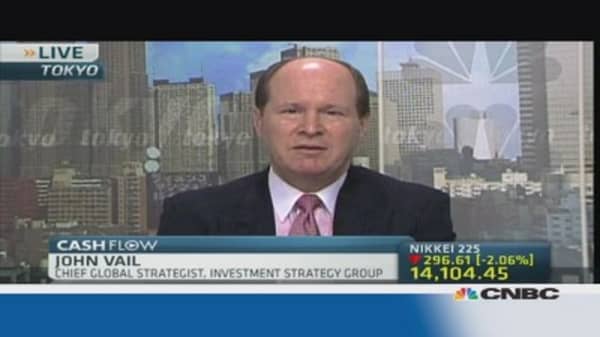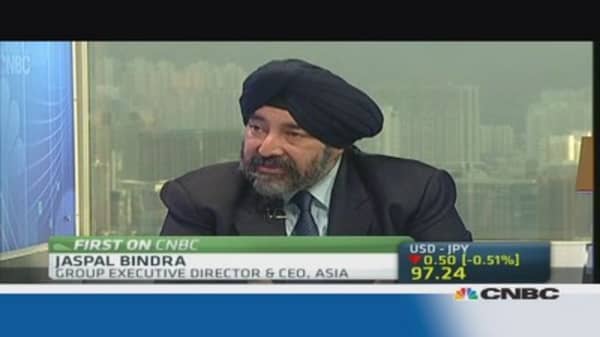Nikkei tanks 4%
Japanese manufacturers suffered the brunt of the losses with blue-chip heavyweight Fast Retailing down over 6 percent, Softbank and Fanuc losing over 4 percent each and automaker Isuzu Motors declining over 7 percent.
The Bank of Japan (BOJ) begins a two-day policy meeting today with an outcome due on Thursday. While analysts expect no action, the direction of the yen will hinge on the BOJ's policy statement.
"Talk of Japanese investors increasing currency hedges of their recently purchased foreign assets has been a key reason behind the JPY strength, while there are concerns that the pace of monetary velocity (the frequency at which money is spent on goods and services over a period of time) is falling," said Evan Lucas, market strategist at IG in a note.
(Read more: Should Kuroda be more like Draghi?)
In earnings news, audio equipment maker Pioneer slumped nearly 9 percent after lowering its operating profit forecast by 33 percent but air-conditioner maker Daikin rose 3 percent after reporting a 133 percent rise in annual net profit.
The Nikkei index's 14-day relative strength index (RSI) stands at 45.9, which shows that the index is still in a downtrend. A reading above the 50-mark signals an upwards trend.
Sydney down 1.8%
Caution over the start of Australia's corporate earnings season led the benchmark index to hit a two-week low, led by sharp declines in mining stocks.
Australia's High Court deemed a controversial profits tax on iron and coal mines was constitutional, leading to a steep sell-off in resources. Fortescue Metals led losses by 4.5 percent while Atlas Iron and Mount Gibson fell 3 percent each.
Banking stocks also suffered. Macquarie Group skidded 3 percent while the nation's top four lenders fell 2 percent each.
Australian-listed shares of Rupert Murodch's newly separated entertainment unit 21st Century Fox jumped 0.8 percent after reporting a 16 percent annual jump in total revenue for the quarter ending June.




